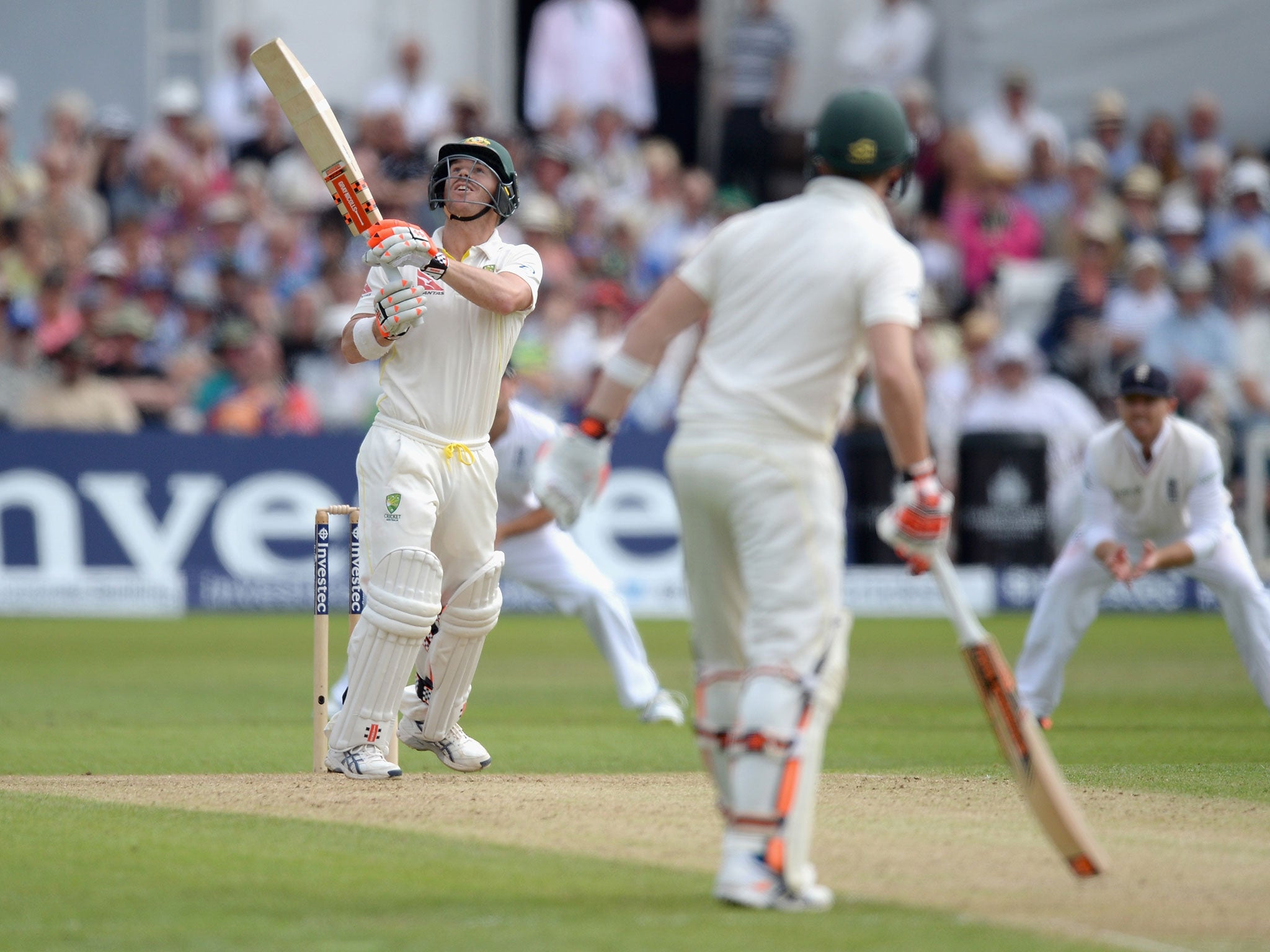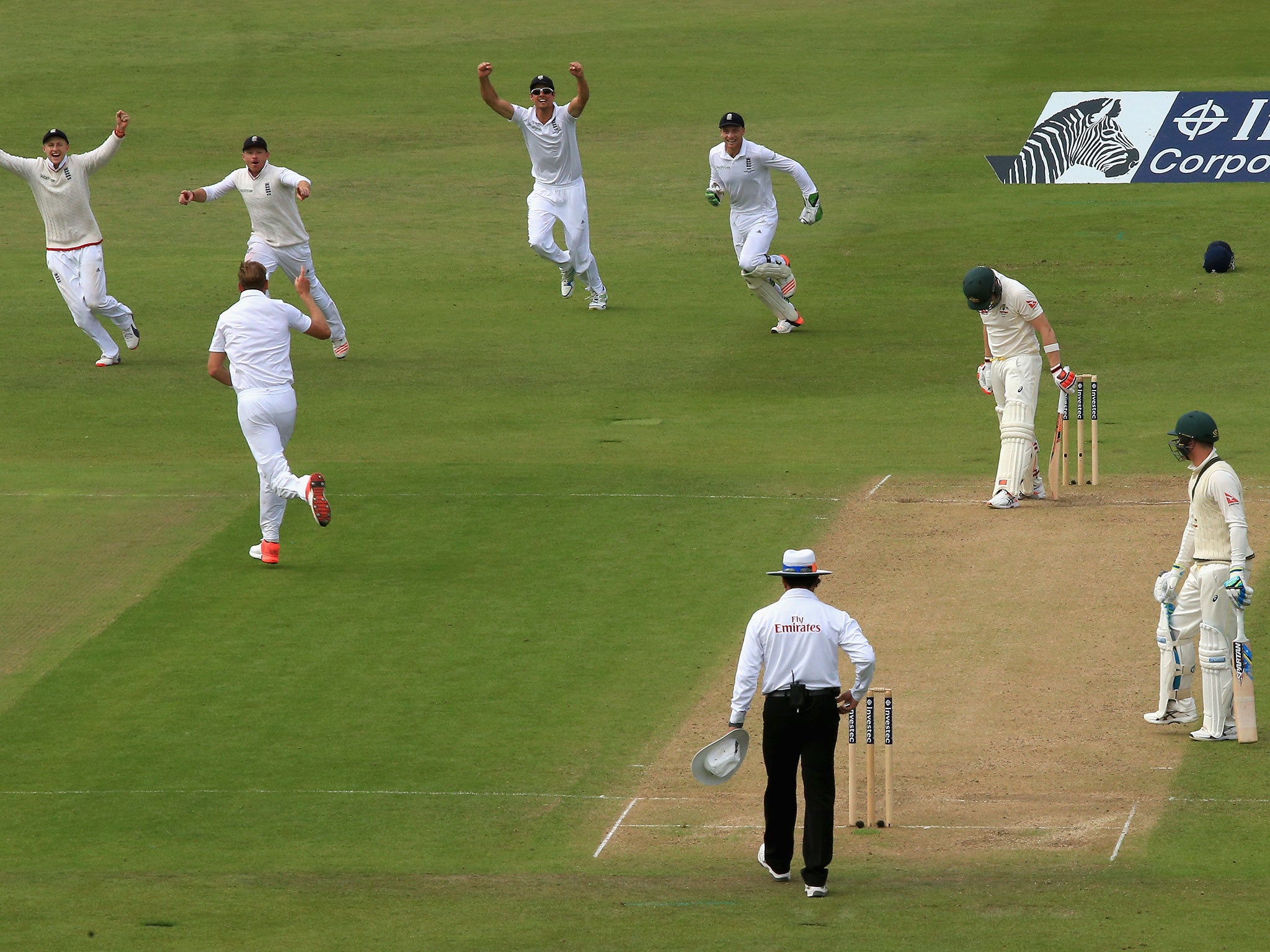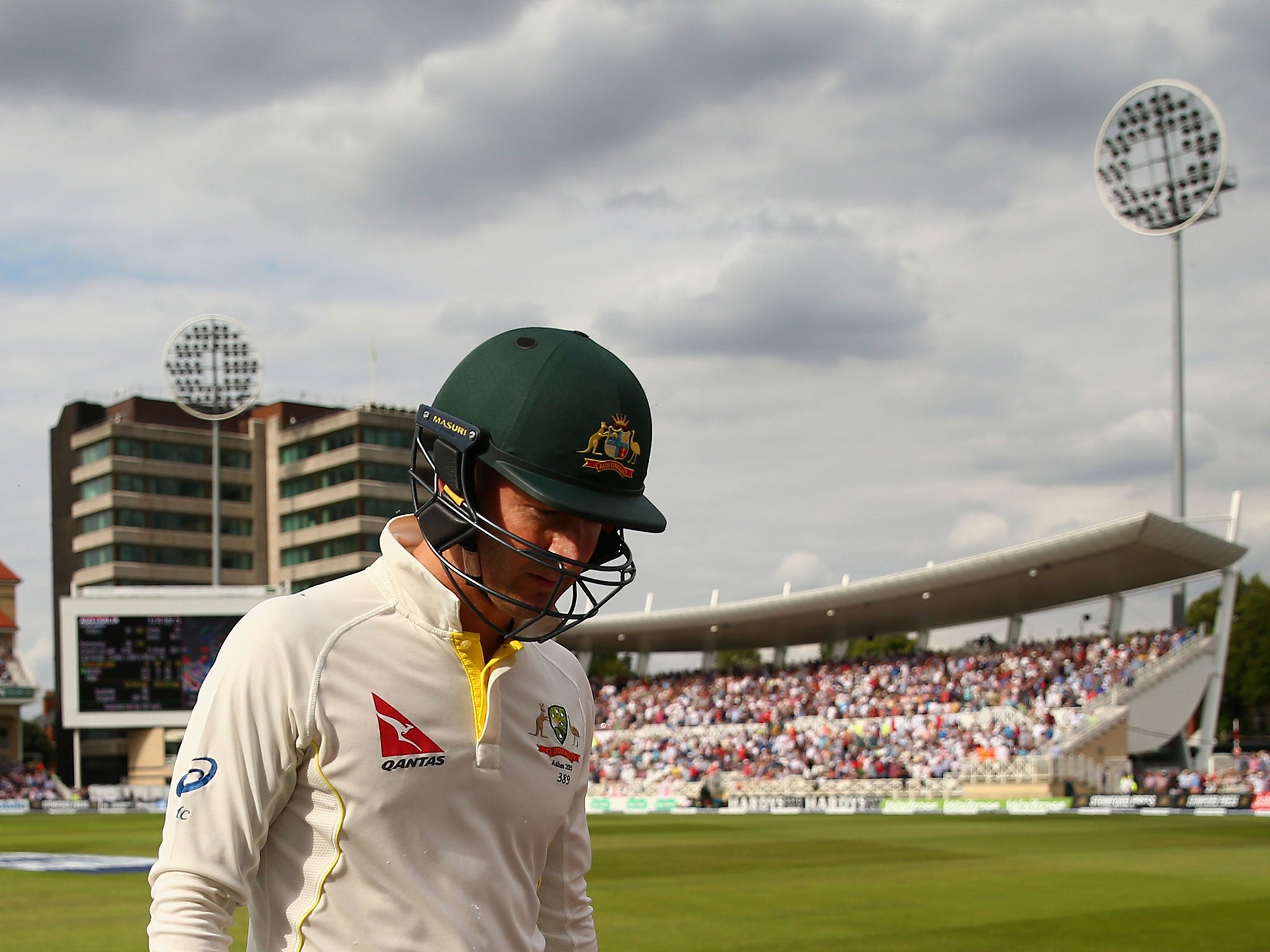Ashes 2015: There is a reason why England are reclaiming the Ashes from Australia
COMMENT: Technical deficit of Australia's batting is all too clear again

Your support helps us to tell the story
From reproductive rights to climate change to Big Tech, The Independent is on the ground when the story is developing. Whether it's investigating the financials of Elon Musk's pro-Trump PAC or producing our latest documentary, 'The A Word', which shines a light on the American women fighting for reproductive rights, we know how important it is to parse out the facts from the messaging.
At such a critical moment in US history, we need reporters on the ground. Your donation allows us to keep sending journalists to speak to both sides of the story.
The Independent is trusted by Americans across the entire political spectrum. And unlike many other quality news outlets, we choose not to lock Americans out of our reporting and analysis with paywalls. We believe quality journalism should be available to everyone, paid for by those who can afford it.
Your support makes all the difference.There was no more vivid sense of the pitiful emasculation of Australia than the moment just before lunch when Chris Rogers was reduced to dragging out time in a ruse to restrict exposure to England’s brilliant effervescence by a mere six balls.
This was the visiting nation, let’s remember, who were so overwhelming convinced this business would be a cakewalk that their cricket governing body took steps to be on the safe side by quietly start briefing about complacency a few months back. Yet here was Rogers, shouting ‘One’, ‘One,’ ‘One’ and gesturing to Sundaram Ravi for more help with the leg stump guard you imagined he already had. It was when this had failed in its purpose, and the umpires allowed Stuart Broad the extra debilitating over after all, that Rodgers cavilled, gesturing in disgruntlement towards the Trent Bridge clock as he left the field for the interval.
That over before lunch will live in David Warner’s mind for many a long day – Broad tracing the ball which kicked up off a length and around his bat, again and again. He was a prisoner of the Radcliffe Road end and five balls into his penury when Rodgers established eye contact with him, nodded and punched his left thigh pad three times, in an unspoken act of insurrection. There was cause to rejoice when those two most improbable opening partners rode out the early English storm, climbing to 113 together, because when all’s said and done you crave what elite sport is supposed to represent: two near equals, colliding titanically. The act of bidding ‘cheerio’ to Australian batsmen - a soundtrack of this summer - has its limitations.

But there is a reason why England stand on the threshold of reclaiming the Ashes and it is the technical deficit which revealed itself all over again, as the Australian innings was back resembling a local bus timetable: the times of dismissal 3.16, 3.25, 3.35. 3.37.
It was transparency of England’s strategizing which made the spectacle so sorry. Stuart Broad was bowling so wide to draw the loose drive from Steve Smith that he might have served him a written notice of intent. Michael Atherton observed Smith, the world’s leading batsman, rehearsing how to leave the ball whilst fielding in the slips, as the enormity of the first innings disaster first dawned on Thursday afternoon. Yet when the enticement arrived just before tea, Smith just could not help himself. A one-day wide was how Shane Warne described the ball he jagged his bat at. ‘They won’t let it go’ is an aphorism we thought we would be using in an Australian context this summer, though never this way.

Smith, Shaun Marsh, Warner: each one of them perished to a shot which had already sent them trudging on their way at some point in these chastening past two weeks in the English Midlands. Smith, caught by a fielder who had just been billeted 20 feet in front of him, was the most excruciating for those crave a contest and a spectacle. Marsh was dismissed by the fourth seamer – a luxury Australia had dispensed with by selecting him as an extra batsman. There were ironies wherever you looked.
Australia searches for an explanation of why they have been reduced to this - fighting like holy hell just to avoid the ignominy of a two-day Test defeats. Overnight, Ian Healy cited the WAGs who are in tow, borrowing from the English vernacular since they didn’t know such terminology before Sven Goran Eriksson’s football team showed the way. Healy says WAGs affect focus. A more prurient interpretation centres on how that group of Aussie partners don’t care so much for each other. How can Michael Clarke get out to talk things over with Warner when their partners don’t get on? Allan Border, whose steely gaze from behind sunglasses in the Trent Bridge stand has become part of the choreography of Australian diminishment, just didn’t tolerate any of that nonsense.

Heads are scrambled all ways. The course of this day seemed set long before the Australian wickets began to fall, for all that Mitchell Starc did to drag the game towards something like parity by taking six wickets and twice taking down timber. When the new ball arrived, it was handed to Josh Hazlewood, who was promptly heaved away for 20 runs by Moeen Ali and Stuart Broad in his first over, rather than Mitchell Johnson, who was eviscerating Englishmen at Lord’s a mere three weeks ago. Wide, 4,4, single, 4, 6, dot - that was Hazelwood: the man they’d been trying to tell us is the new Glenn McGrath. The expressionless look on Smith’s face when he had leapt to claim Ali’s wicket suggested he divined the gulf between Clarke’s overnight declaration of intent and the cold truth. Smith knew.
England made the only significant declaration of intent. Calling time on their first innings before lunch was such an intelligent piece of malevolence, adding to Australian disorientation by sending Warner and Rogers sprinting away to ready themselves. It’s been that way ever at this place since Clarke found himself marching out to bat at No 5, at 11.14am on Thursday morning, with his side at 10 for 3. The visiting dressing room is a perpetual scene of panic, batsmen scrambling around to find where the thigh pads have been put.
They can’t say they were not offered their chances. Warner was dropped twice, on 10 by Alastair Cook and 42 by Ian Bell. Rogers and Nevill were dismissed by no-balls. But it was all academic. Clarke had spent the afternoon’s early hours sitting before the pavilion window, assessing if a kind of salvation might be located. He was a fleeting presence when he had departed the field, his last chances to effect an Ashes win on English soil reduced to dust, just like everything on a tour which began with optimism and has been reduced to something infinitely deeper than desperation.
Join our commenting forum
Join thought-provoking conversations, follow other Independent readers and see their replies
Comments